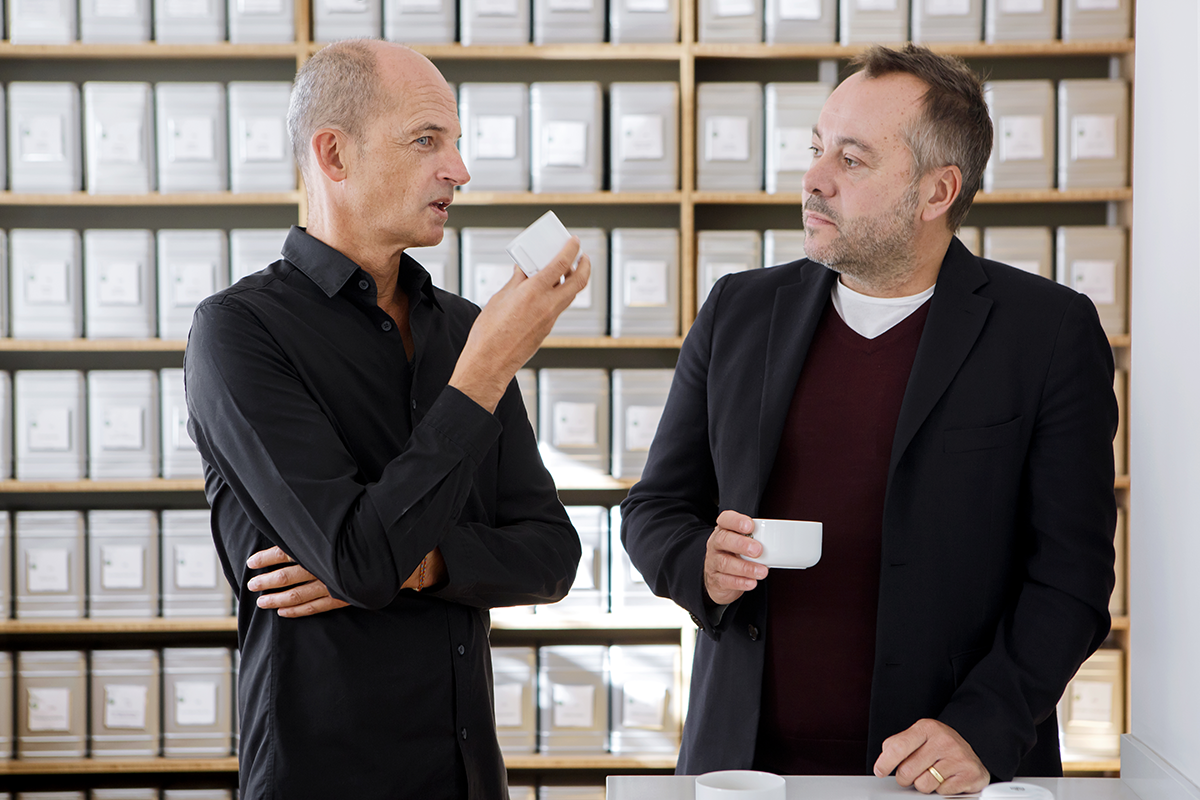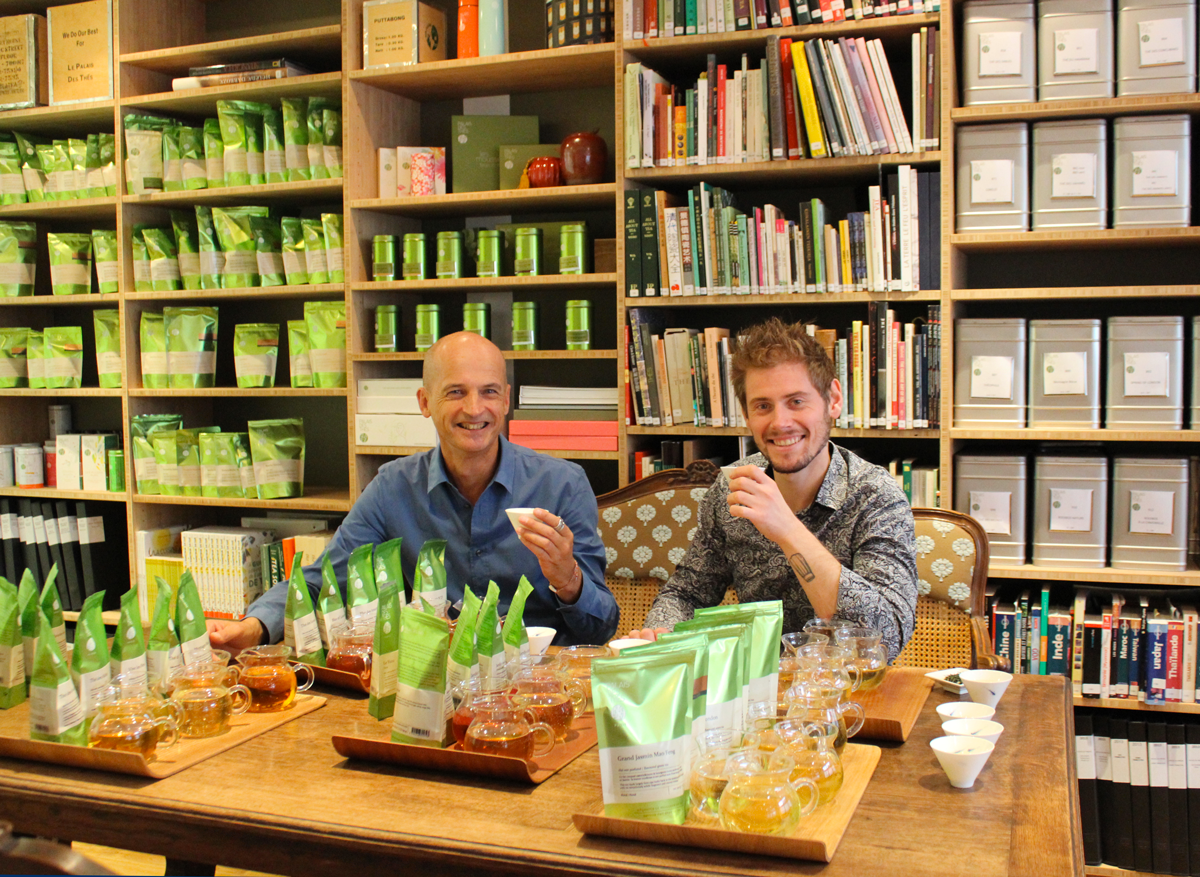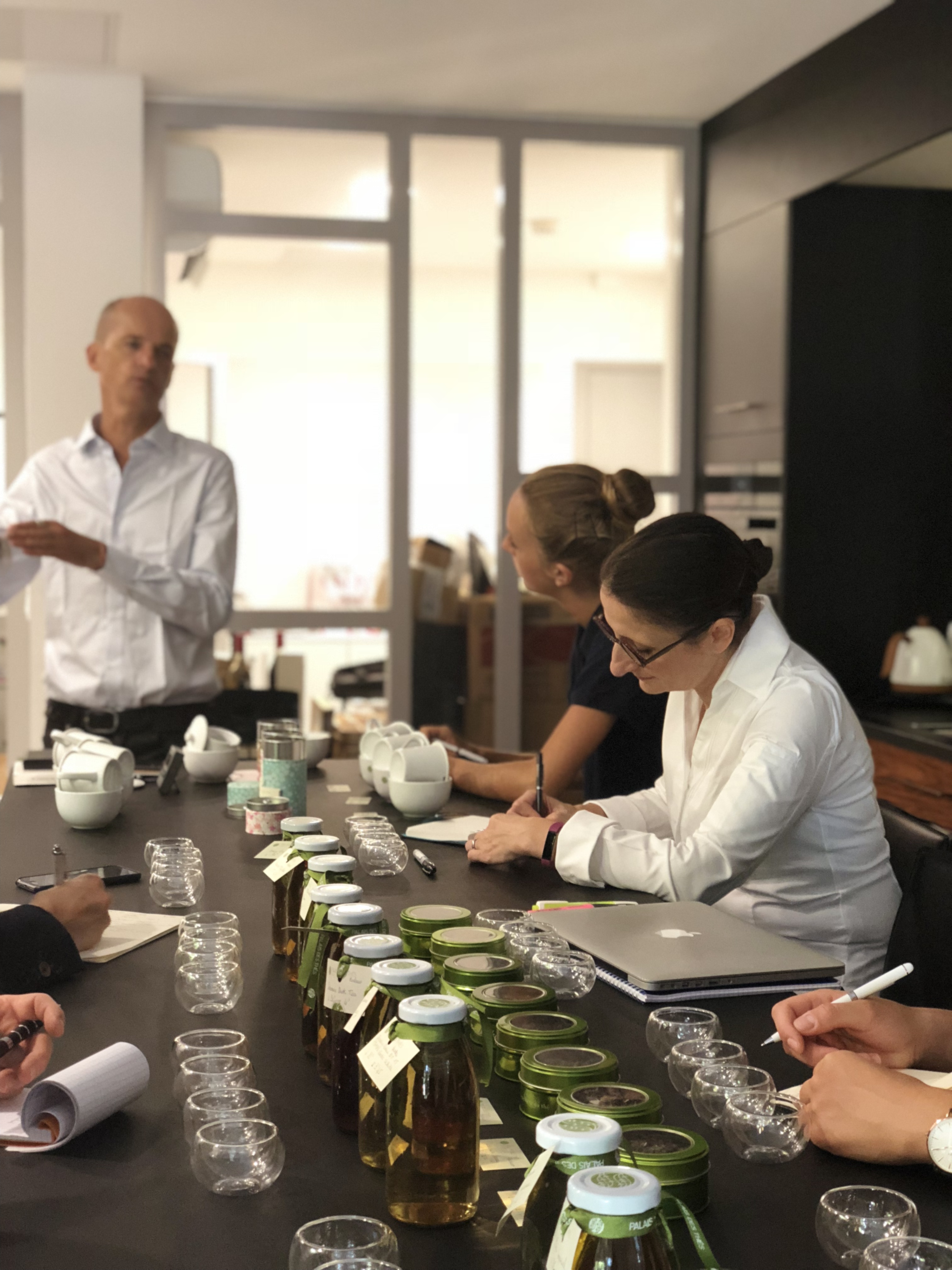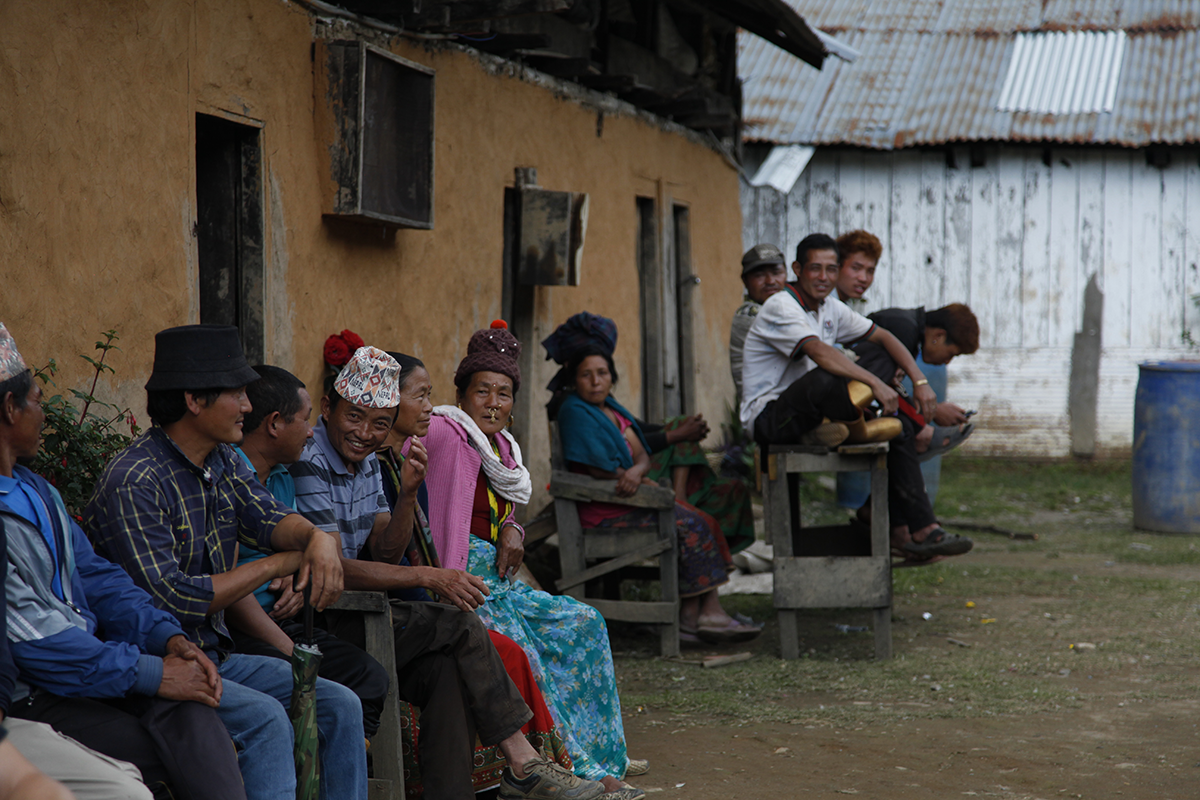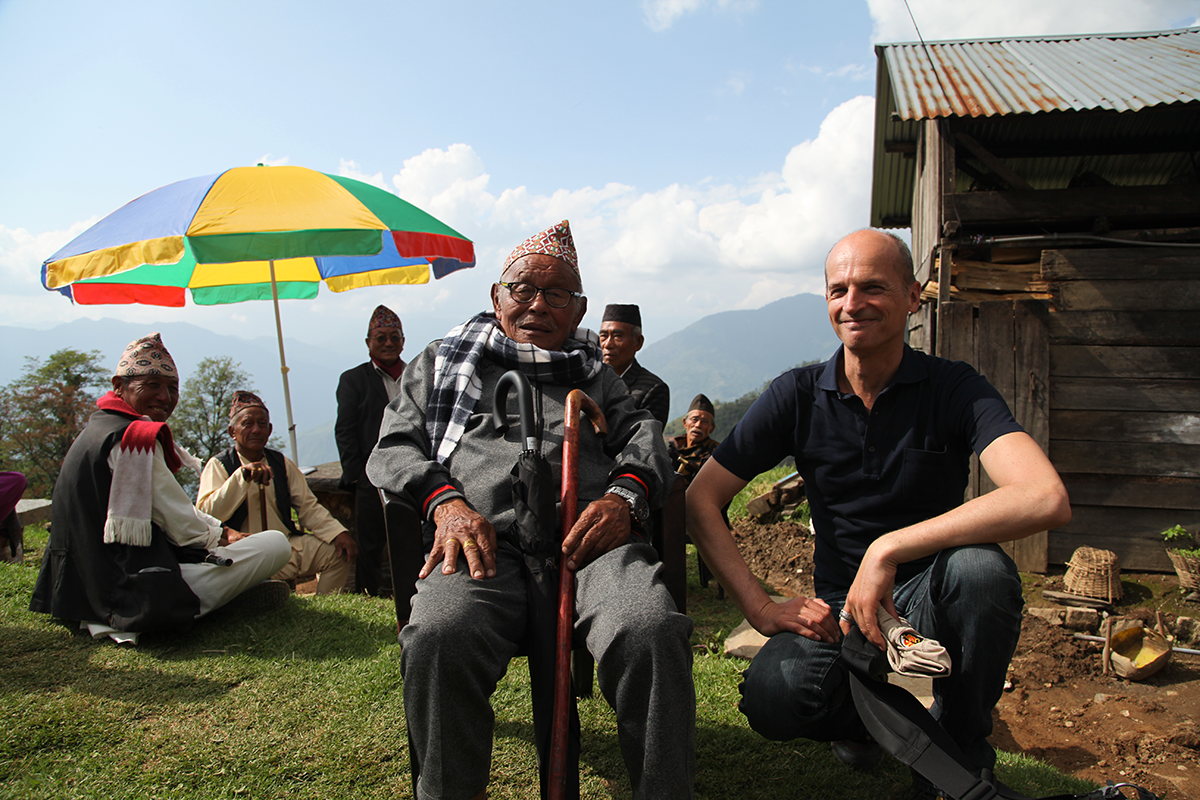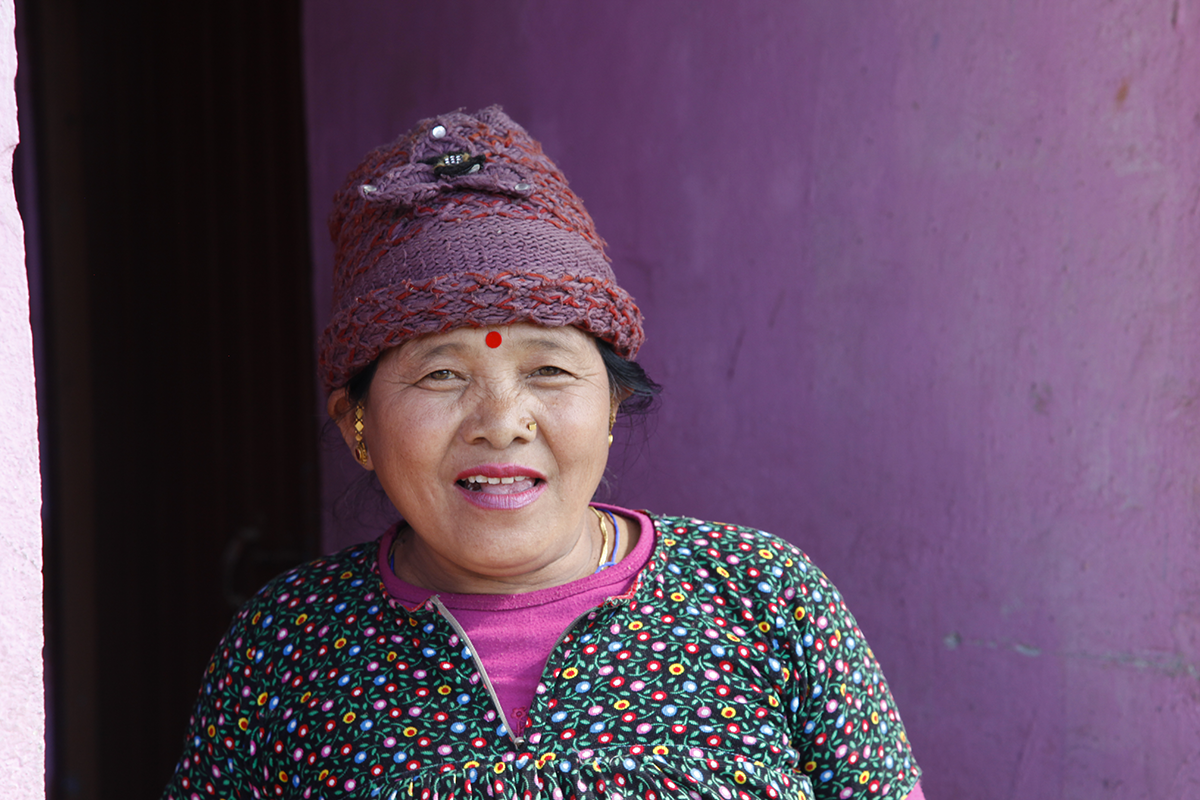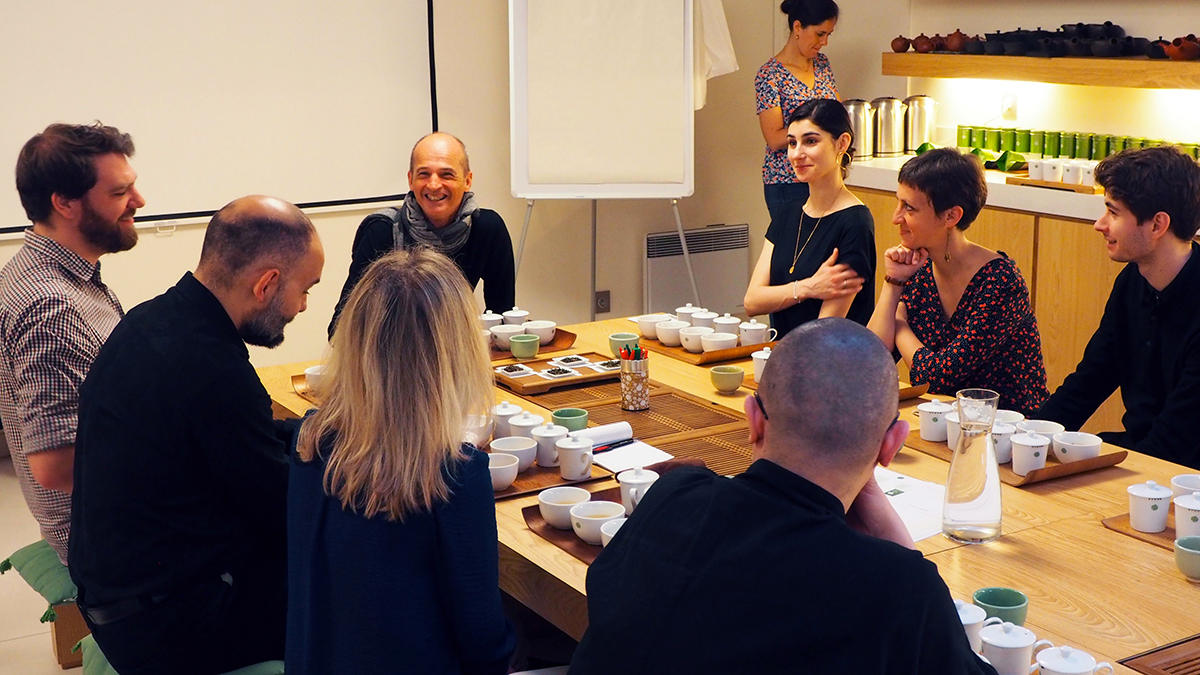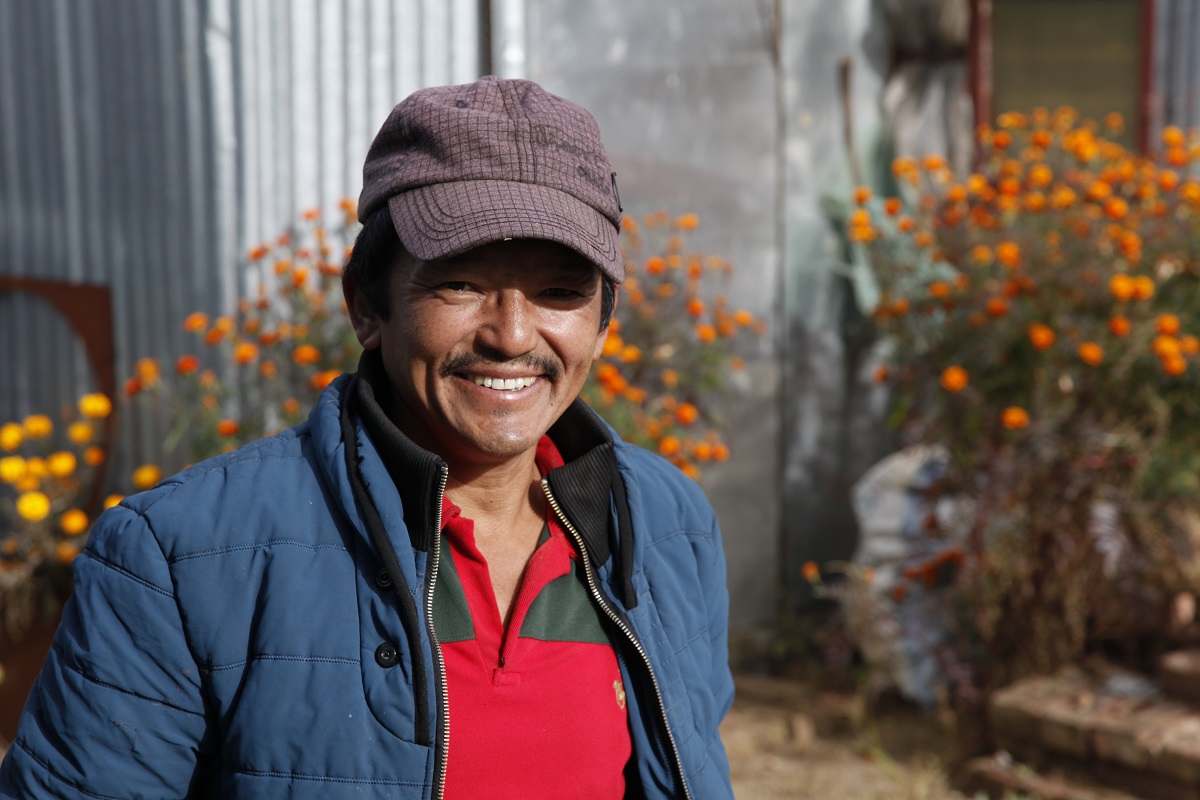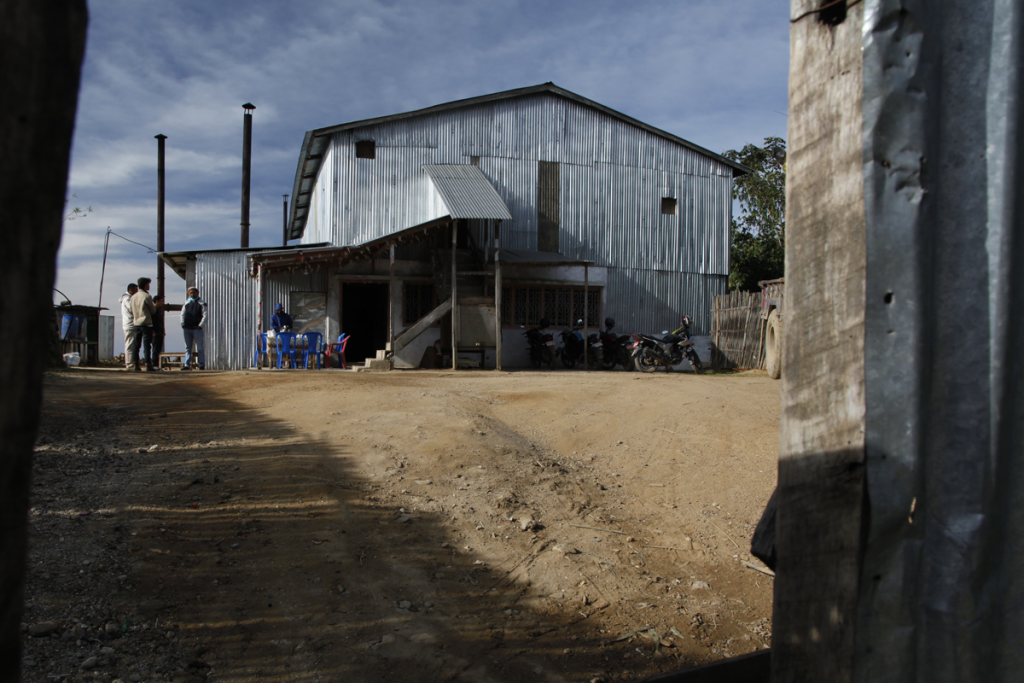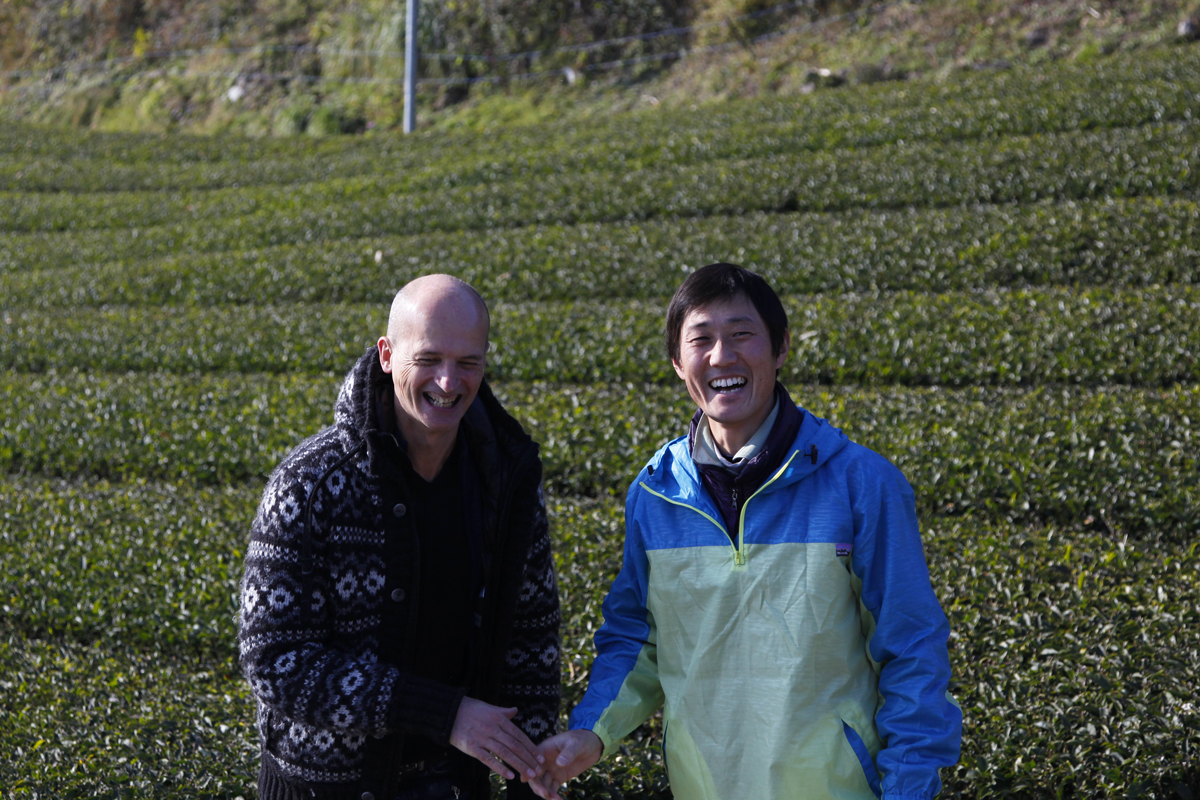To create the ideal tasting conditions, you need quality tea, you have to pay attention to the quality and the temperature of the water, the brewing time and, of course, the recipient. Avoid large teapots, because they are detrimental to the quality of infusion. To get the very best out of your tea, including and above all the rarest teas of all, the material and the size of the recipient are essential. Here is an inspirational tasting session for the famous designer, Patrick Norguet. His goal is to understand my trade, to understand the imperatives and the expectations, so that, one day, he can create the ideal object for tasting tea. I am looking forward to it.
Tea people
With Bryan Esposito, pastry chef at the Collectionneur Hotel in Paris
Part of my job is to introduce the incredible variety of flavours among teas to current and future chefs. This is the flipside of my work out in the fields with the farmers. On the one hand I select premium teas; on the other, I help chefs understand how to use them. There are teas of different colours, different origins and also of different varieties. These differences create the range and variety in the gastronomic qualities of tea. You have to taste them to understand, which is what I’m doing here with Bryan Esposito, pastry chef at the Collectionneur Hotel in Paris and former pastry chef at the Westminster Hotel. Introducing someone to the great range in the flavours of teas also means explaining the best way to obtain the liquor for the intended use. The amount of tea used, and the time and method of infusion, will differ depending on whether you want a liquor to be consumed as it is or used in a recipe. It is interesting to experiment with different aspects of the infusion method, including cold infusion, which opens the way to many uses in the kitchen. It goes without saying that I’m looking forward to tasting Bryan’s new creations!
Tasting premium teas with Anne-Sophie Pic
This week I had the immense pleasure of tasting a fine selection of premium teas with Anne-Sophie Pic and her team of sommeliers. Anne-Sophie is such a kind and considerate person and treated me like royalty in Valence. She is eager to learn and so generous with her time, especially considering she’s the only French woman to hold three Michelin stars. She listens attentively and asks plenty of questions. Together, we tasted teas infused, both hot and cold. Our tastings took us to Darjeeling and Japan via Nepal, South Korea, Viêt Nam and even Africa. We talked about ways to use tea in cooking, and possible pairings between teas and dishes. It was incredible to contribute, however modestly, to her inspiration! And what a treat to share an unforgettable meal with her afterwards, an explosion of textures, flavours and aromas. Thank you Anne-Sophie.
A farm on a human scale
Some teas are produced on a vast estate with up to a thousand people living on it. Some are produced by a co-operative of small producers. And some are produced on a simple farm, like here, at Pathivara. Different farms have different social structures, and I prefer the ones on a human scale. A far cry from the cliché of the planter living cut off from the world in a magnificent bungalow (inherited from the days of British rule), when tea is produced on a farm, villagers often spend the evening there too. They sit around together, chatting, chatting, chatting. Sometimes they drink, sometimes they play music, sometimes they dance. It’s life, quite simply.
With the “father” of Pathivara
Among the plantations worthy of attention recently is Pathivara, in Nepal. Here, I’m with the plantation’s father, the man who started it. In just a few years, he’s succeeded in producing delicious teas, so far with very modest resources. What’s more, the teas are certified organic. A new building is going up; I laid the first stone on my previous visit. It will house more sophisticated machinery, although the team is already producing some very fine teas. Since the start of June, I’ve bought three batches: Pathivara Classic, Pathivara Black and Pathivara Dragon Yeti – these mountains are full of poetry. Each tea is very different, with very varied aromatic profiles. Here, poetry and gastronomy come together.
My blog talks about encounters
My blog is about tea, but it’s also about meeting people. I didn’t know this lady. She was just standing outside her house, opposite a tea factory. I liked her pretty purple hat and the touches of purple under her coat set against the purple backdrop behind her. I knew nothing about this lady, except where she lived; we simply smiled at each other and I held up my camera – by way of asking her if I could take her photo – and she agreed. And there she was, and here she is. I’m so happy when I’m travelling, walking down the lanes of remote villages, or through the fields. I’m so happy when I photograph them, these men and women… we exchange a few words, we laugh and often we sit a while together, on a bench, a step, a stone… any place will do. And we get to know each other – just a brief encounter – then I go on my way again. And to share them with you, these faces, these moments… as I see it, that’s just as important.
Proud experts!
It’s no mean feat to obtain a Tea Sommelier diploma. First, the candidate must answer 24 open questions in just an hour. Then they must prepare, in front of three examiners, a tasting of six teas from among 22. The leaves placed in front of the applicant have no written indication of their type, colour or origin. Then they must perform a task chosen at random: prepare a matcha tea correctly, serve tea in a kyusu, or serve a pu erh using the gong fu method. That’s what this esteemed exam consists of, meaning that those who obtain the diploma are true experts! Here, I’m meeting some of them, with my assistant watching on. Bénédicte has infused a few premium teas, which we are discussing.
Arya Tara: the rare teas of Saran RAI
I find it very rewarding to tell you about the men and women who make the teas you drink. Today, I’d like to introduce you to Saran RAI. Based in Arya Tara (Nepal), Saran produces different grades of tea, but just 300 kg a year. He uses my favourite cultivar: AV2. It is a very small, very high-quality plantation. Half of the fresh leaves that make his teas come from his own fields, and half come from the 50 or so local farmers. When I ask what he is most proud of, Saran replies: “being visited by people from afar”. It is true: he receives very few visitors. The route is arduous, especially the last few kilometers. I walked them, on an almost impassable track, surrounded by beautiful countryside. Although his plantation is not certified organic, I have no doubt that Saran uses organic methods.
Modest appearances
In Nepal, factories often look quite makeshift, from the sheet roofing to the very basic structure. Teas are tasted outside, on trestles. This is a long way from Darjeeling, with its British colonial influence. But we shouldn’t judge by appearances. Inside these modest-looking buildings, the equipment is not only very good (small rolling machines from China or Taiwan, quality ovens, machines that delicately shape the leaves, etc.), but most of all, you find a unique expertise and creativity. The people are young and passionate – again, very different from the image of the established planter in Darjeeling. They live and breathe tea, and think of almost nothing else. Their sole objective is to make delicious teas, whatever the colour. The lack of a tea tradition in Nepal undoubtedly frees them up to explore new leaf shapes, new types of rolling, new approaches to production in general. “Handmade” Nepalese teas (as opposed to the crush, tear, curl teas and the big factories, which also exist in the Ilam region) have a bright future ahead of them.
In Japan, organic farmers, father and son
I’d like to introduce you to Kitano Shuichi. Of all the farmers I’ve met in Japan, he’s the most passionate and inspiring about organic practices. He’s been using these methods for 30 years, introduced by his father. The latter, convinced of the health benefits of organic tea, suffered financially for ten years, due to very low yields, but he pulled through. Today, he sells his tea for a good price because demand for organic tea is higher. Kitano Shuichi and his father make their own compost, while others buy it in from outside. But most significantly, they never use anything to do with animals in their compost. So that means no cow manure, for example. They believe in biodynamic methods and use them successfully. They’re so proud of their compost they insist you taste it. But if you want to know their exact recipe, you can ask all you like but they’ll reveal nothing save their good humour, with a smile.

